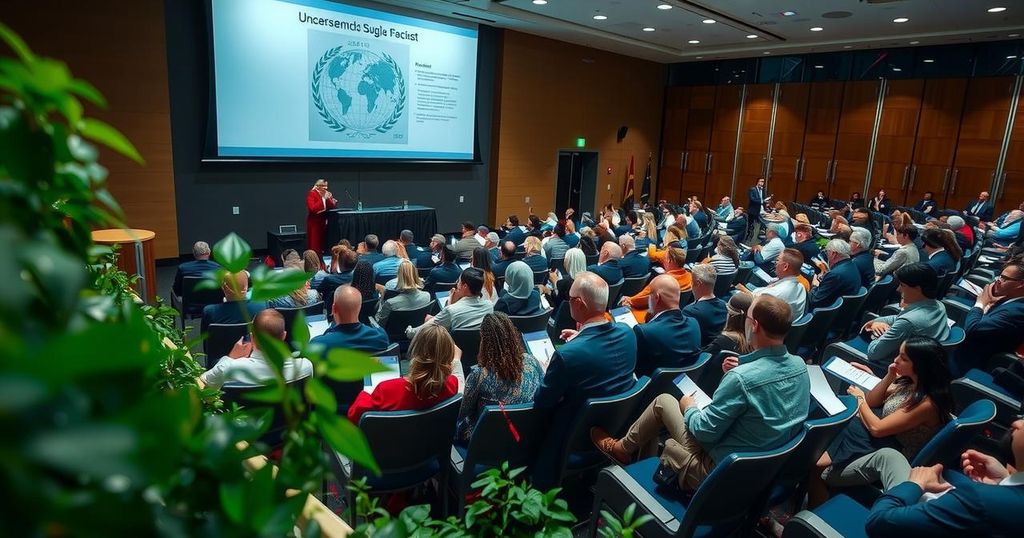The UN climate talks in Baku faced significant hurdles as negotiators struggled to reach an agreement, reflective of past failures in climate diplomacy. Historical conferences, particularly COP6 and COP15, serve as reminders of the difficulties in achieving global consensus amidst political uncertainty and logistical challenges. Recent discussions on biodiversity also ended without crucial commitments, emphasizing the ongoing need for international cooperation and dialogue.
Negotiators at the UN climate talks in Baku faced significant challenges in reaching a consensus on crucial environmental agreements, a scenario reminiscent of previous conferences since the inaugural gathering in 1995. A noteworthy moment was COP6, held in The Hague in 2000, when discussions were suspended due to disputes regarding land-use credits, compounded by uncertainty over the US presidency. The withdrawal of the United States from the Kyoto Protocol later catalyzed action among other nations, underscoring the intricacy of international climate negotiations.
The shadow of prior failures looms large, particularly the outcomes of COP15 in Copenhagen in 2009. Hailed as a pivotal moment for climate diplomacy amidst the election of President Obama, the conference failed to yield binding agreements and led to disillusionment among smaller nations, which felt sidelined. The conference’s inability to solidify commitments was compounded by logistical issues, with delegates scraping by after the official closing due to insufficient provisions. More recently, COP16 on biodiversity concluded without establishing financial commitments to address ecological destruction, further aggravating concerns about international resolve.
As climate negotiations continue, the importance of consensus remains paramount, yet the varying interpretations of what constitutes that consensus contribute to ongoing challenges in crafting effective agreements. Resuming discussions in 2025 mirrors the ongoing necessity for robust international collaboration to tackle climate and biodiversity issues.
The history of UN climate conferences is marked by both ambition and disappointment. Since the first conference in 1995, these gatherings have often been characterized by disputes and failures to reach consensus on pressing environmental matters. COP6 in The Hague highlighted the impact of political uncertainty on negotiations, particularly relating to US climate policy. Similarly, COP15 in Copenhagen was overshadowed by unmet expectations and demonstrated the challenges of achieving binding agreements among competing national interests. Within this context, recent negotiations on biodiversity reflect a persistent trend of difficulties in mobilizing commitments and consensus among member states.
In summary, the ongoing struggles at the UN climate conferences highlight significant obstacles in achieving international cooperation on environmental issues. Historical precedents such as COP6 and COP15 illustrate the complexities involved in reaching agreements amid political differences and logistical challenges. The recent failure at the biodiversity COP16 further underscores the urgent need for renewed dialogue and commitment among nations to address the challenges posed by climate change and environmental degradation, culminating in a call for resumption of talks in the coming years.
Original Source: www.france24.com







